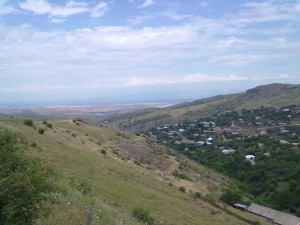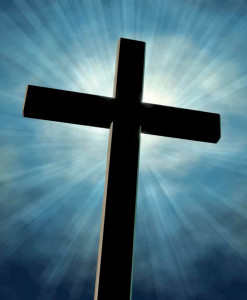JOY IS WEAPON TOO
 When the forest gets dark, the village lights up, as if stars are falling from the sky into the gorge.
When the forest gets dark, the village lights up, as if stars are falling from the sky into the gorge.
“It is a real paradise,” I say. “It is green everywhere, with trees and flowers.” This year the harvest is abundant, the trees in the home gardens are fully fruitful.
“You live in paradise,” I repeat. Jonik looks at me with a look that seems skeptical.
“There are a lot of apples, pears, blackberries, blackberries, figs, walnuts in the forest … God gave it, he did not spare it, I insist. Jonik is smiling.
“What is paradise, why did you leave this paradise, go live in the capital? Look, your grandfather’s two-story house is empty, come live in this paradise, again.
“What about my job? What should I do here?”
“You will keep pigs, you will milk cows, you will go and harvest the goods of the forest, you will take them to the city to sell …”
“Oh,” I do not find anything more convenient to say.
“Are you better than my wife?”
I’m a little offended.
“When I come to the village, I will work as a school principal. My grandfather, Vasil Ghushchyan, was the director of your school, the traditions will continue,” I softly make it clear that we are a tribe of intellectuals…
“We have a school principal and enough teachers for 16-17 students.”
“I will also work as a village head.”
“What should we do to our village head? Everyone wants to become a village head. There is no other job in our village than raising pigs and cows and cultivating the land.”
“I was born in Yerevan, my ancestors are from your village.”
“Your relatives should have stayed in this paradise, the children of your school principal grandfather.”
“Who? My uncles that are lawyers and an economists.”
“Our children have not graduated from the institute of keeping pigs and cows. My son is an economist like your uncle, the other son is a diplomat, the third is a psychiatrist …”
I laugh out loud, and Jonik laughs too.
“And my uncle, who lives in the capital, has been in the village with his wife for three months.”
… The sky is so close. It seems that if you raise your hand, you will touch the stars. It seems that the stars have joined and become a big, bright Cross and shining on the heights. It is Jonik’s gift to his fellow villagers. He also built a chapel on the mountain.
“The sky is ink,” I say. “I have never seen an ink sky anywhere.”
Jonik does not respond. He pushes the stones with a piece of wood. It should light a fire.
“I would be an artist …”
“You know what I remembered,” Jonik does not let me continue my thoughts, “Alpine violet”.
“Bakunts?”
“Yes, they said that an artist came, admired like you, said it was paradise and … left, and the people were left with their pain.”
Suddenly a rumble is heard …
“Did they shoot?” I ask anxiously.
“No, they did not shoot,” Jonik reassures, “but they can shoot.” The Azerbaijanis are 2 kilometers away, and to reach the nearest Armenian village you have to travel 10-11 kilometers.
“Koti?”
“Yes, Koti. We are surrounded by three Azerbaijani villages …”
“But we have a positional advantage, don’t we?” I show my military knowledge.
“They have a position from where Barekamavan is seen as if in your palm. We have been living under the target for almost 30 years …”
 Our village has a history of 3000 years. And we will not leave that story incomplete. It is not three, let ten Azerbaijani villages stand against us, we will not run away, we are deprived of something else, the departure of young people … My son came from the army a few days ago and served in Hadrut. He finished his first year of economics and went to the army. He will continue his studies in Yerevan from September. To see life in the capital, find a job in his profession and love a girl, will he come to keep pigs in Barekamavan?
Our village has a history of 3000 years. And we will not leave that story incomplete. It is not three, let ten Azerbaijani villages stand against us, we will not run away, we are deprived of something else, the departure of young people … My son came from the army a few days ago and served in Hadrut. He finished his first year of economics and went to the army. He will continue his studies in Yerevan from September. To see life in the capital, find a job in his profession and love a girl, will he come to keep pigs in Barekamavan?
“You also have a higher education, you traveled the world, but you came back,” I say.
“I served in Poland. My papers were ready, I was offered a good job in Poland, but suddenly I changed my mind. I realized that I was like a tree uprooted, I was short of breath and I wanted my village … But at that time there was livelihood, there was work in the village. Barekamavan was a big village, it had a school and a kindergarten, a house of culture.
Who cared about Yerjan? They used to come to give us a concert and a theater … We had a movie theater. Young people dressed nicely, went to the movies … to find a girl.
“At that time I came to Barekamava from Koghb as a bride,” says Christine, Jonik’s wife, who during our conversation was putting fruit in jars and pouring fresh water on it.
“You did heroism …”
“No, what I am not saying it was heroism. Barekamavan was no different from Koghb. If it was like today, I would not come. Look, we work from morning till night, in the field, on the land, in the field … I am not saying that most of the lands are under the target of the Azerbaijanis, we do not have good land, we have to squeeze bread from the stone. But there is no kindergarten for young families to take care of their children and go to earn a living. My son and daughter have worked with us since childhood. My son came home from school, helped his father instead of doing lessons, only got home in the evening, and did lessons at night. My daughter got married in the village, but when they leave the village, there is no way. You have to work in the village to make a living. Tell me, who will take care of the child so that my daughter can work?”
“I missed football,” says the handsome young man who had recently been demobilized, Manvel, the son of Jonik and Christine. “It was the biggest gap of my childhood that I missed playing with boys my own age.” There were not enough boys to play football. Will it be possible to play football with three people?”
I’m laughing.
“You found something to complain about. You talk about shooting. Say there is no opportunity for entertainment, say there is no job or football …”
“I did not have a childhood …”
He says so sadly that I’m serious about someone.
“My future children must have childhood …”
“Are you going to leave the village?”
Manvel shakes his head.
“If there is a job, people will not only stay in the village, but also those who have left will return. The homeland starts from the border, we were trained in the army. This is the border, what difference does it make? In the army they gave us very good food, they dressed well, they provided all the living conditions, the doctor was by your side … Well, this is also an army, every resident of the border village is a soldier, every house is a position … I am not saying: Give us free bread like an army, I just want a job. We are working people. I also worked in Yerevan. My classmates were sitting in cafes after school, I was working in the door factory until late at night to relieve my parents of some worries.
For example, why do they sew a soldier’s uniform in Yerevan? Is there less work in Yerevan? Let them open a workshop in our village and pay something more. They pay so much that the women of the neighboring villages come and sew, let them provide a vehicle to bring those women from the neighboring villages to Barekamavan every morning to work and take them home in the evening. You will see that the village is full. You will see children running in the streets, playing football as a team …”
By GAYANE POGHOSYAN
Category: #36 (1356) 9.09.2020 - 15.09.2020, Army and Society, Spotlight










